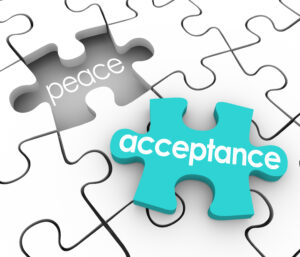Divorce and separation are not failures, in the same way as longevity is not an indicator of a successful marriage. When things reach a breaking point in a relationship, our first instinct might be to reach for the phone number of a divorce lawyer.
However, even when things seem insurmountable, there can be real value in seeking the advice and experience of a counsellor. Divorce counselling, marriage counselling before divorce and post-divorce counselling have helped many people to adjust and move on.
Sometimes relationships run their course.
It is not just desirable but also possible to end a marriage with grace and respect.
Divorce and separation cause stress and anxiety for partners, children and families. It can be a good investment in the future to work things through counselling rather than to focus on lawyers, creating a battleground solely.

Divorce Counselling versus Marriage Counselling
Divorce Counselling starts with the realisation that a marriage is no longer tenable. By contrast, the aim of Marriage Counselling is to see whether there is anything to salvage in the relationship, to rebuild love and trust and keep the union together.
At Leone Centre, we respect the decision you have reached that separation or divorce is the best solution for you. However, we will talk through all the implications and likely outcomes of such a separation to help ensure that you are confident you’ve made the right decision.
Alone or Together
You may already be separated and potentially no longer on speaking terms with your partner or not.
Divorce Counselling can work with individuals or couples to form a workable plan that minimizes trauma and, in particular, limits the suffering of any children within the relationship.
It is a holistic therapeutic approach that addresses the complex and painful knot of emotions as well as the practical challenges that accrue from a relationship that’s ending.
What Counselling Can Address
Divorce counselling can cover the following areas, depending on what’s most important to specific clients:
- Loss – divorce can be a process of grieving
- Amicable Separation – it need not be antagonistic
- Renewed Independence – learning to cope without your partner
- Issues around Co-Parenting – how to make it work for both partners and children
- Renegotiating your Relationship – remaining friends
- Getting Practical – simplifying the formalities
Let’s look at these aspects of divorce counselling in a little more detail.

Loss – Divorce and Grief
Dr Elizabeth Kubler-Ross’s famous five stages of grieving – denial, anger, bargaining, depression and acceptance – are highly applicable to relationship break-ups. In a divorce, what dies is hope.
We pin our dreams and aspirations on our romantic relationships. We cannot help but draw a picture of future happiness built upon what that relationship will become.
When that structure comes crashing down, we can be left tearful in the rubble. Feelings of hopelessness, loss and depression are commonplace.
A counsellor can help you understand where you are in this process of recovery or at least prepare you for the negative emotions you will inevitably experience.
Amicable Separation
When Gwyneth Paltrow and Chris Martin talked about their “conscious uncoupling”, it caused much hilarity amongst more cynical commentators.
This cynicism is understandable – break-ups are often painful, ugly, sad and disappointing.
However, it is also possible for two people to simply grow apart. When that happens, an amicable split can be achieved. It can even be seen as a positive move – the relationship worked for two people at a particular point in time; it simply isn’t right for them now.
What’s vital to minimise here is blame. It’s natural to feel that one or other party is responsible for the split, particularly then has been an infidelity or other betrayal.
However, insisting upon the judicial meeting out of blame will not help a couple achieve an emotional equilibrium or a place from which to collaborate (particularly if you still have to work together to look after children).
Without denying the validity of those feelings, a divorce counsellor can help you work through them and let their most negative presentations go.
Renewing Independence
For years, perhaps decades, you’ve had your partner to fall back on for comfort, support, help and sexual intimacy.
Now you are facing a life without that person, and it may feel like a piece of you is being severed. This is natural.
However, if you choose to separate, you will have to find, once again, that part of you that knows how to be single. The notion of a partner “completing one” isn’t necessarily a meaningless cliché, but nor is it especially helpful.
While adjusting to divorce or separation, you are entitled to focus on yourself and your own well-being (even if there are children to consider).
Hopefully, this process will present opportunities for new growth and discovery too.
A counsellor can help you find the strong, independent individual waiting to emerge.
Co-Parenting Challenges
One of the most contentious issues in divorce is parenting.
In acrimonious divorces, access to children can become a bargaining chip; this can only have a negative effect on vulnerable youngsters.

What children seek most is reassurance – that either parent won’t neglect them and that they are in no sense to blame for the split.
A relationship counsellor can give you the necessary tools to have those hard conversations with your children and provide the reassurances they need.
You should be able to find workable solutions to questions of access and support, and the counselling sessions are safe spaces in which to hold those conversations.
Becoming Friends
Particularly where children are involved, but not exclusively, there can be much value in keeping in touch with and continuing to offer some emotional support to your partner. This is in tension, however, with a psychological need to pull away and “stand on your own two feet”.
Divorce counselling can help you negotiate a new footing for your friendship, should you want (or need) to maintain contact with your ex-partner.
After all, you already share memories and experiences – need the slate necessarily be wiped clean of all you have learned and shared? A divorce counsellor can help you negotiate those difficult but necessary boundaries.
Getting Practical
A divorce lawyer is not an impartial observer of your separation. It is their job to win the best “deal” they can for their client. This can necessitate tough bargaining.
By contrast, a counsellor should be able to remain objective and help you work through the relational and emotional aspects of the sometimes-protracted legalities and formalities of your divorce.
Divorce and separation won’t ever be a walk in the park, but neither need it to be an endurance sport.
- About the Author
- Latest Posts
Co-founder and director of Leone Centre, 20+ years of experience supporting people, and offering valuable knowledge through Couples Counselling and Individual Counselling. Before becoming a therapist, I worked in the financial sector.

Get Started Today
with Leone Centre

BOOK NOW

Call us
020 3930 1007

View our therapists
Find your match


